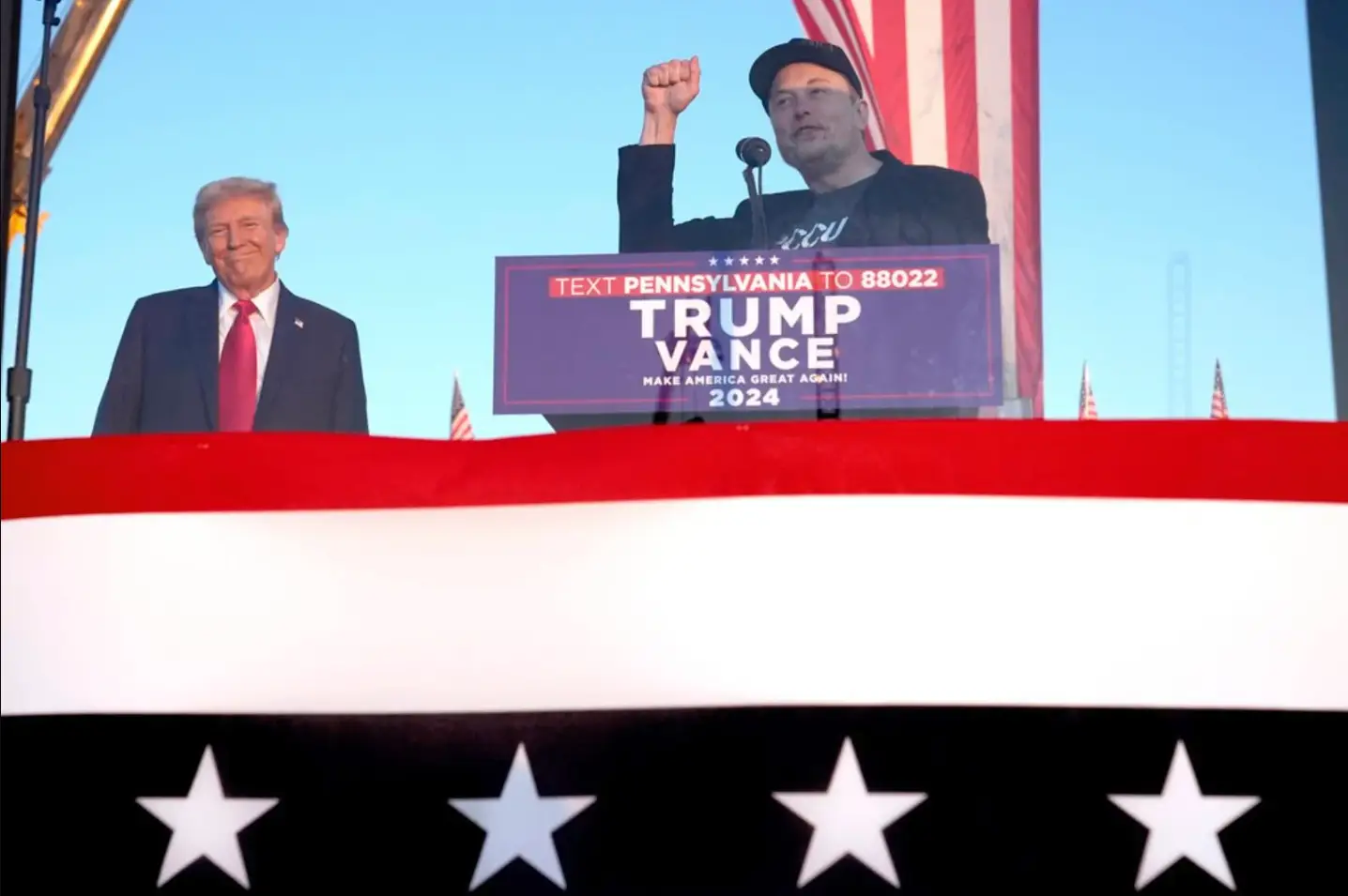On January 20, Trump returned to the White House in a peaceful transition of power, unlike what happened four years ago when he refused to attend Biden’s inauguration and incited his supporters to storm the Capitol. Trump’s return is undoubtedly the result of the expression of the will of most American society (51%). However, while the peaceful transition demonstrates the resilience of institutions, the continuity of democratic practice is called into question.
What is at stake with the Trumpist project is the realization of the potential for autocratization and, ultimately, the right to be a U.S. citizen. This is his main political agenda: defining who has the right to fundamental guarantees, the possibility of contestation, and protection in the exercise of power.
From the electoral campaign, Trump has advocated for radical changes in immigration, environmental, diversity, and minority protection policies. And for those who thought these were empty campaign promises, they were taken aback by the demonstration of determination and urgency. As his administration’s first acts, he promoted the revocation of previous government policies and previewed what is to come: imposing taxes on foreign countries, reinstating the “Remain in Mexico” policy, repealing the Green New Deal, and establishing the “official policy of only two genders: male and female.” He justified these changes as his responsibility as “commander in control” to defend the country from “threats and invasions” and to elevate the United States to “a proud, prosperous, and free nation.”
Subverting democratic practice, Trumpist rhetoric is marked by a chauvinistic exaltation, traces of imperialist expansionism, and nostalgia for a past dominated by hegemonic classes. His political mobilization arises from the tension between the values of “white identity” – defined by Ashley Jardina as a sense of collective white identity in reaction to the expansion of rights and the feeling of sharing political-economic power with other groups – and the guarantee of protecting the rights of minority groups.
This movement brings together individuals from dominant groups who feel resentful about the expansion of rights and guarantees, motivating them through the perception of threat and the desire to reclaim white socio-economic and cultural hegemony. Beyond mere identity politics, the slogan “MAGA – Make America Great Again” encapsulates Trump’s vision of reclaiming “America” according to supremacist interests.
Moreover, his rise is linked to two circumstantial factors: popular discontent with government responses (a crisis of representation) and the fragmentation of society into different values and worldviews. The perfect storm is forming to spread segregation, revenge, and institutional disbelief.
Thus, whether it’s mere bravado or not, Trump directs his political action toward (i) rescuing and absolutizing declining hegemonic values and (ii) pointing to scapegoats as the cause of America’s problems. By doing so, he is not forced to present a comprehensive improvement plan and, turning democracy upside down, builds his supremacist agenda—ensuring freedom, protection, and rights only for those who share his convictions and whom he recognizes as citizens, at the expense of setbacks in minority rights.
Modus Operandi
These elements are part of the current growing reactionary wave, which promotes prosperity through policies based on “anti-multilateralism” and supremacist-patrimonialist protectionism. The goal is to evade responsibility for the collective impacts of this isolationist agenda, which leads to the rejection of global commitments such as climate and trade agreements.
With their own variations, leaders like Javier Milei, Viktor Orbán, and Nayib Bukele share this style of governance, using identity-based or economic efficiency agendas to mobilize a majority and justify the “side effects” of oppression against minorities. These leaders are genuine authoritarian expressions, using identity-based conservatism to secure the necessary support and sponsorship, thereby imposing these values on everyone. It is the logic of the tyranny of the majority, which intentionally ignores aspects of equity and social justice—precisely what democratic practice seeks to prevent.
In this context, the alignment of major tech CEOs with Trump carries serious consequences for society. By accepting his proposal, the controllers of global communication channels have embarked on a joint venture with Trump. More than mere support, this represents the explicit consolidation of the oligo-autocratic alliance, which, through mutual collaboration, advances their political and economic projects without any obligation for social or collective accountability.
Let’s not be deceived: there is no gain for individual freedom or collective rights. The dismantling of the framework for protection and equity serves only to guarantee free rein for certain entities to push forward socioeconomically impactful policies without oversight.
Furthermore, the political leader’s declared intent to eliminate diversity policies and fact-checking creates negative social incentives, such as fostering misinformation and intolerance within society. Undoubtedly, economic repercussions will follow, whether in the labor market or through increased transaction costs due to heightened uncertainty and institutional fragility. The sense of fear will also intensify, driving greater public support for violent security policies and even the extermination of minority groups.
The rollback of environmental regulations and the resumption of fossil fuel exploration may, in the short term, relax restrictions and lower production costs. However, the questionable individual benefit will impose a steep global cost, particularly for poorer countries, which will suffer the harshest consequences of climate change—this is the conclusion of Nobel laureate Esther Duflo’s study.
Normalizing what should be abhorrent seems to be the prevailing trend in politics. This is the direction in which the then-president intends to take the United States—toward the oppressive condescension of a segment of society through the implementation of a supremacist and oligarchic project, despite the collective global order. However, supporting policies that seek individualistic gains, reinforce privileges, or segregate social structures is to be complicit in the perpetuation of historical violations and to absolve the responsible actors of accountability.
It is therefore crucial to expose euphemisms and not treat persecution and oppression as mere protectionism or conservative identitarianism. The big danger of failing to name things correctly is that it allows powerful groups to sponsor authoritarian regimes and collective harm while profiting from them without consequences. There are, in fact, organized sectors that see democracy as a limitation and an obstacle to the fulfillment of their oligarchic interests. The pioneer Elon Musk, now part of the Trump administration, recognized the profit potential in diversifying investment across technology, social networks, and autocratic leaders. Other investors with significant (economic and political) power are opportunistically following suit, without any sense of shame.
By predicting that “the American Dream will return,” Trump makes it clear who will be allowed to dream. The question remains whether there will be institutional, political, and social conditions to resist and halt the nightmare of others—even beyond the wall—whose dreams do not seem to fit within this supposed North American oligoautocracy in progress.
*Machine translation proofread by Janaína da Silva.











